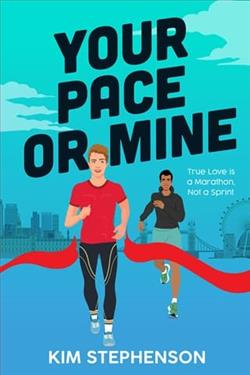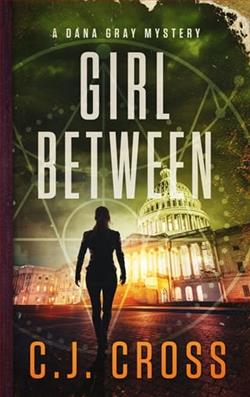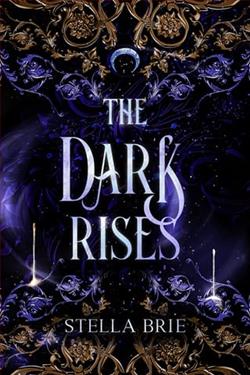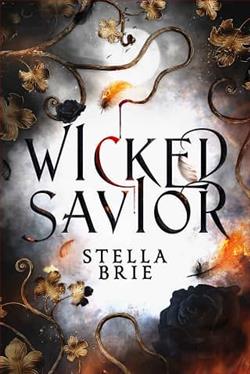Page 144 of Rakes & Reticules
“C’mon then, my little bat. Let’s see if yer worth the price.”
They moved on, stopping in the blackness at the end of the alley. Their laughter and moans faded as Sam scurried back onto the street.
Only a year ago, he’d been surrounded by loving parents, a fine home, a warm bed, and a promising future. Tonight, he’d be grateful for a chunk of bread and a coat not threadbare, sleeves that covered his arms, and shoes that fit without holes. His stomach growled painfully after the cruel recurring nightmare. The memory of that last dinner of roasted fowl and plum pudding made his mouth water. He chewed on his chapped bottom lip, and it started to bleed. The salty, metallic taste made him gag.
It had been a nightmare when the constable came to arrest his father. February second, Candlemas Day. In hindsight, he understood the disappearing furniture “out for repair,” his mother insisting she enjoyed performing household duties for her “men” as the cook, then the maid quit. The poorer quality of their meals had been explained away by the change in butcher or baker. Yet, Mr. Brooks had refused to sell the harpsichord—his wife’s only possession she’d brought into their marriage.
After several months, what little blunt his father had been able to take with him had been sorely depleted. They’d had to move to more crowded quarters. His mother’s cough worsened inside the damp stone walls, shoved together with so many people that there was no room for cots. So, Sam had left the prison and looked for work. At King’s Bench, he was one more mouth for his father to feed.
This afternoon, Sam’s last coin had gone to his parents, now residing in King’s Bench. It had taken half the day to make it to the Southwark prison and cost a farthing of his precious stolen hoard to see them. But his fragile mother would die in the debtor’s prison without a dry place to sleep and sustenance. He’d been horrified to learn that one must pay for everything in gaol. It made no sense. His father was in debt, yet he might never leave the prison walls because all their blunt went to the wardens. Without the payments, his parents would suffer worse conditions in an overcrowded cell, layers of filthy straw for a mattress, fending off even hungrier, more desperate inmates.
He learned to survive. Therefore, his parents would survive. But it was a daily struggle to find a position when one had no manual labor skills, only book learning. Grown men with families claimed any position Sam might have been qualified for.
He tried street sweeping, but he didn’t have the gumption for it. The successful boys jumped in front of people, swept a path for them, then demanded or finagled money from the unlucky passersby. He was too big for a chimney sweep. A barkeep gave him a corner in the kitchen in exchange for running errands and tending the fire. With a place to sleep, Sam had held horses for the genteel and sold newspapers on the street during the day. A modiste gave him soup and bread whenever she needed a chore done around her shop. But it was barely enough to keep himself fed and warm, let alone support his parents.
And then the final blow. Last week, a new barkeep had taken over the tavern. He had his own sons to help him, and Sam found himself out on his ear without a place to sleep.
So, much to his horror, he found himself snatching food from stands and running like the thief he’d vowed never to become. At low tide, he joined the other mudlarkers, combing the Thames muddy bottom for anything he could sell. His clothes reeked of the foul river, the cuffs of his shirt and hems of his breeches in tatters. His hands and feet blistered from the constant exposure to the frigid water and muck. There, a boy of five had befriended him, offering “trade secrets” on pickpocketing for a share of Sampson’s stolen food.
Sampson J. Brooks, once a future solicitor with the world before him, was now a thief and a pickpocket—still an apprentice-in-training for the latter. He hadn’t actually picked any pockets or stolen any purses yet. But it had to be better than mudlarking. Except his hands shook every time he thought about it.
“Where’re ye goin’ so early, my friend?” A drunken portly woman called out from the tavern door across the street.
A large man stumbled out, his hand up in a friendly goodnight wave, the echo of music and laughter following his huge dark form. “Home. I’ve a wife waiting.”
The murky yellow light spilling from the grimy window framed the customer’s silhouette into a giant menacing shadow. Sampson couldn’t see his face, but he could feel the strength of the man. The glint of gold flashed as the man twirled his walking cane.
Sam leaned back, blending into the shadows of the stone steps and hoping the man would head his way. He did, weaving ever so slightly across the street toward Sam. Collecting his courage, Sam hid in the dark corner of the stoop, willing the feeling back into his calloused hands. As the gentleman passed by—for he must have been a gentleman from his fine coat, hat, and gleaming boots—Sam prayed to any god listening that the man was foxed.
Slipping from the darkness, Sampson quickly moved behind the tall form, mimicking his victim’s walk as the river lad had taught him. When the man leaned to the right, then to the left, so did Sampson. He eyed the walking cane with the gleaming handle and intricately carved stick, knowing it would bring a month’s keep at the pawn shop.
He sucked in a deep breath, lunged forward, his hand grasping the stick, and—
“Mother Mary and Joseph, boy-o. What ye doin’?”
A great paw pulled Sampson up by the back of his collar. It began to rip, and he struggled, praying the cheap wool that had never kept him warm would at least aid in his escape. His feet hit the ground again, and Sam took off once more, only to have the hook of the cane pull him back by his neck.
“Oh-ho. Ye tink to get away so easy?” boomed the deep voice.
Sampson raised his head and looked at the barrel-chested Irishman. His brogue was as thick as his red hair and beefy hands.I’m doomed.He squeezed his eyes shut, waiting for the sturdy fist to find its target.
He stared at Sam for a while, then gave him another shake.
“Open those eyes, boyo,” the stranger demanded. “Ye want ta die in a rat-infested prison or be transported ta Australia?”
Sam shook his head, terrified of this monstrosity of a man.
“Tis no answer, boyo.”
Sam shook his head again, blinking back the hot tears stinging his eyes.
“No tongue? A mute, are ye?”
“No, my lord.”
That seemed to amuse the man for he let out a hearty guffaw. “I’m a hardworkin’ Irishman. Not a drop of blue blood in me.”
“Yes sir,” Sam croaked.















